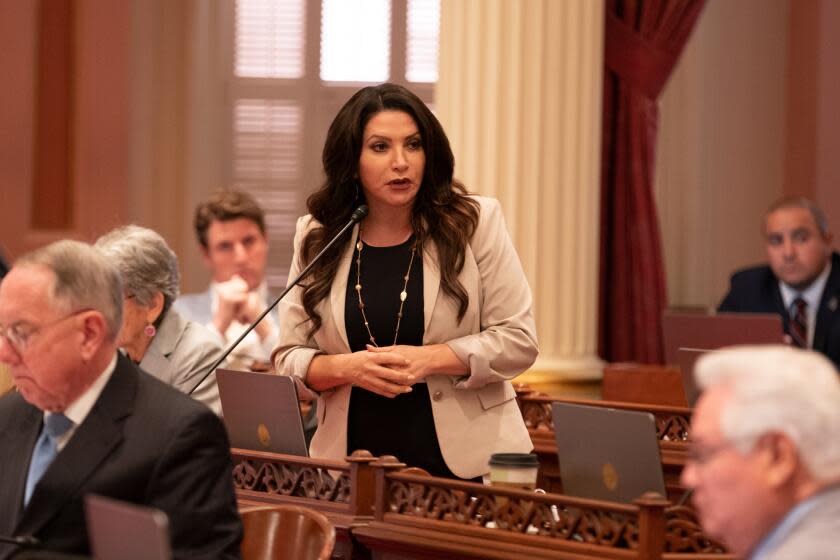Amid allegations against Sean 'Diddy' Combs, lawmaker wants to expand domestic abuse prosecutions

- Oops!Something went wrong.Please try again later.
For the record:
5:16 p.m. May 24, 2024: An earlier version of this article said that Sean “Diddy” Combs could be subject to prosecution over allegations that he abused his then-girlfriend in 2016 under a proposed bill in the California Legislature. The proposed change to state law would not be retroactive.
In the wake of allegations that billionaire music mogul Sean "Diddy" Combs abused his girlfriend in Los Angeles in 2016, a state lawmaker introduced legislation to allow accusers up to 15 years after an incident occurred to press charges.
"This is the reason I fight so hard to educate and encourage people to see through the lens of a victim," said Sen. Susan Rubio (D-Baldwin Park), who authored the bill and says she is a survivor of domestic violence.
Rubio in 2019 pushed for a bill to extend the statute of limitations from three to 20 years. Lawmakers eventually agreed to extend the time to five years. Now Rubio is making another attempt, through Senate Bill 690, to expand it to 15 years.
For Rubio, five years is "not good enough."
Read more: Sean 'Diddy' Combs seen on video chasing, kicking, dragging then-girlfriend Cassie at L.A. hotel
Her remarks come in the week after disturbing surveillance video surfaced that shows Combs physically abusing his former girlfriend in a Los Angeles hotel in 2016. Casandra “Cassie” Ventura, a singer who dated Combs for 11 years, filed a lawsuit against him last year.
The Los Angeles County district attorney’s office called the video "difficult to watch" in a statement following the release of the footage. Still, authorities said they can't pursue charges.
"If the conduct depicted occurred in 2016, unfortunately we would be unable to charge as the conduct would have occurred beyond the timeline where a crime of assault can be prosecuted,” the statement said.
The American Civil Liberties Union of California said it respects the goal of promoting justice for survivors of domestic violence but opposed the 2019 bill.
"We fear that the extension proposed by this bill will both threaten defendants’ rights and remove the incentive for law enforcement and prosecutors to more swiftly address reports of domestic partner violence in the first instance," it wrote.
Rubio initially said that if her bill passed, Ventura would be able to press charges. Rubio's represenative subsequently said that the change in the law would not be retroactive.
The bill is not retroactive and would only apply to future cases. The bill currently is under consideration in the Assembly.
This story originally appeared in Los Angeles Times.

